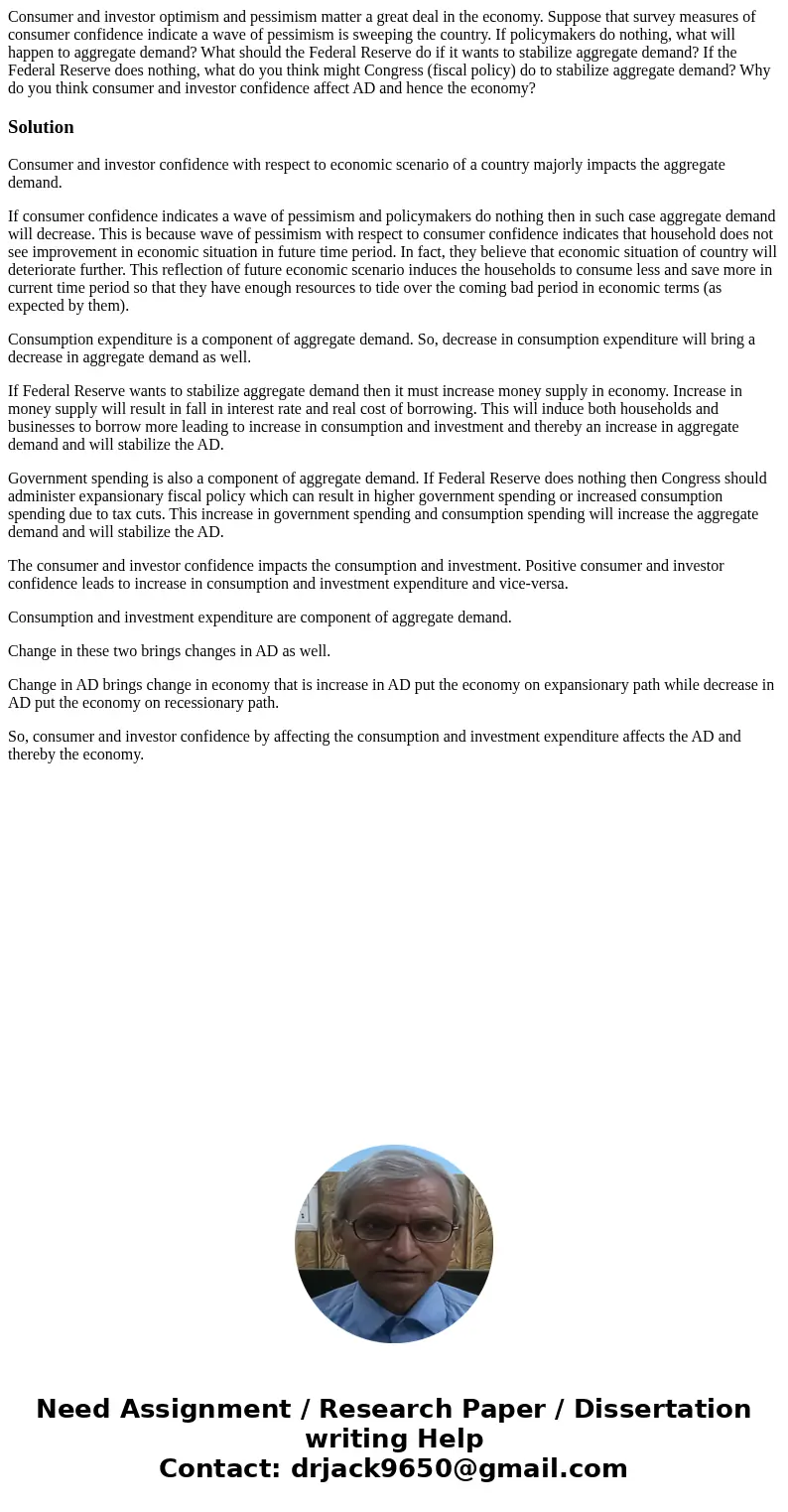Consumer and investor optimism and pessimism matter a great
Consumer and investor optimism and pessimism matter a great deal in the economy. Suppose that survey measures of consumer confidence indicate a wave of pessimism is sweeping the country. If policymakers do nothing, what will happen to aggregate demand? What should the Federal Reserve do if it wants to stabilize aggregate demand? If the Federal Reserve does nothing, what do you think might Congress (fiscal policy) do to stabilize aggregate demand? Why do you think consumer and investor confidence affect AD and hence the economy?
Solution
Consumer and investor confidence with respect to economic scenario of a country majorly impacts the aggregate demand.
If consumer confidence indicates a wave of pessimism and policymakers do nothing then in such case aggregate demand will decrease. This is because wave of pessimism with respect to consumer confidence indicates that household does not see improvement in economic situation in future time period. In fact, they believe that economic situation of country will deteriorate further. This reflection of future economic scenario induces the households to consume less and save more in current time period so that they have enough resources to tide over the coming bad period in economic terms (as expected by them).
Consumption expenditure is a component of aggregate demand. So, decrease in consumption expenditure will bring a decrease in aggregate demand as well.
If Federal Reserve wants to stabilize aggregate demand then it must increase money supply in economy. Increase in money supply will result in fall in interest rate and real cost of borrowing. This will induce both households and businesses to borrow more leading to increase in consumption and investment and thereby an increase in aggregate demand and will stabilize the AD.
Government spending is also a component of aggregate demand. If Federal Reserve does nothing then Congress should administer expansionary fiscal policy which can result in higher government spending or increased consumption spending due to tax cuts. This increase in government spending and consumption spending will increase the aggregate demand and will stabilize the AD.
The consumer and investor confidence impacts the consumption and investment. Positive consumer and investor confidence leads to increase in consumption and investment expenditure and vice-versa.
Consumption and investment expenditure are component of aggregate demand.
Change in these two brings changes in AD as well.
Change in AD brings change in economy that is increase in AD put the economy on expansionary path while decrease in AD put the economy on recessionary path.
So, consumer and investor confidence by affecting the consumption and investment expenditure affects the AD and thereby the economy.

 Homework Sourse
Homework Sourse